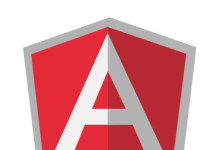Overview
Technical interviews and tests pose a significant challenge to the candidate and unless you are prepared you will almost certainly fail. Whether you are a software developer, an operations or devops engineer, a tester, security expert or IT technician the following advice will help you.
It is usually a good idea to have your CV as polished as possible and having a good recruitment consultant is definitely a benefit, though you may need to shop around to meet the right person for you.
The hiring manager will probably first learn about you from your consultant who will pass them a CV, resume or from your Linked In profile. It is therefore imperative that this is as good as it can be so that you have the opportunity to interview.
Getting a job is about passing through stages, jumping through hoops and presenting yourself as a good hire.
Preparation
The interview will usually be in several phases and normally consists of a mix of personality, soft skills and technical tests:
- A phone screen
- A written or online technical test
- A face-to-face technical interview
- A cultural fit interview
Phone Screen
At this stage as phone screen is the most efficient first interview. No transport is required and many interviews can be completed efficiently from the comfort of the home or office.
The phone screen usually lasts an hour or less and can give a relatively quick idea for a hiring manager whether a candidate:
- Has the general and specific skills represented on the CV
- Is a good communicator
- Understands the role and the required functions
It is also a great time for the candidate to:
- Ask about the role, it’s challenges and opportunities
- Understand the company culture
- Find out about potential colleagues
The Technical Test
For some people the hardest part of the interview process is the technical test. More than any other part you will need a lot of focus, experience and knowledge to pass these tests. The only way to pass is to practice.
As a programmer or software developer you will not only be tested on your knowledge of a specific language but on your analytical skills relating to data structures and algorithms – this is not for everyone.
Operations Engineers will need to know bash scripting, infrastructure, operating systems, virtualisation, cloud services, security, and many diverse aspects of a company’s infrastructure.
Testers will need to know about quality assurance tools, writing and executing test plans, the software development life cycle and the various areas of testing such as unit, functional, integration and performance.
Security Professionals will need to be familiar with OWASP vulnerabilities, physical and virtual security, penetration tests, cryptography, system vulnerabilities, patching and anything that can limit threats and reduce risk to an organisation.
Face to Face Technical Interview
- Be well dressed, clean, on time and relaxed
- Listen carefully, consider your answers and use your knowledge and experience to show why you are a good hire
- If you do not know about an area or cannot remember be honest. If it comes back to you later in the interview, politely ask if you can return to that point and give a simple explanation of the issue with examples
Cultural Fit Interview
Even if you can do the job technically, the employer will want to know that you will get on with the people already doing the job. So find about about them from their online profiles. you should also find about about the company. Always be polite and open minded, refraining from negative remarks. Remember this is probably the final consideration so if you have gotten this far don’t mess it up – do your research and present yourself as someone that is flexible and a good, honest potential colleague.
Follow up
You should be given feedback on how you have performed in the interviews. Be aware that any information you receive can be very valuable even if it is in the form of a rejection – remember even the best technologists fail far more tests than they pass. The difference is that a good technologist takes on board criticism and works to improve themselves in that area. Do not take any feedback personally, just consider it and if you feel it is reasonable add it to your to do list.
Final Advice
- Always present yourself well
- Speak politely and clearly
- Be clean, tidy and well dressed, wearing a suit if appropriate
- Do not be afraid, even if you fail there is a lot to be learned
- Good people fail many time before passing
- Take advantage of an opportunity when it presents itself
- Study, take courses and get certifications
- Contribute to open source projects
- Improve your soft skills, communication and eye contact.










